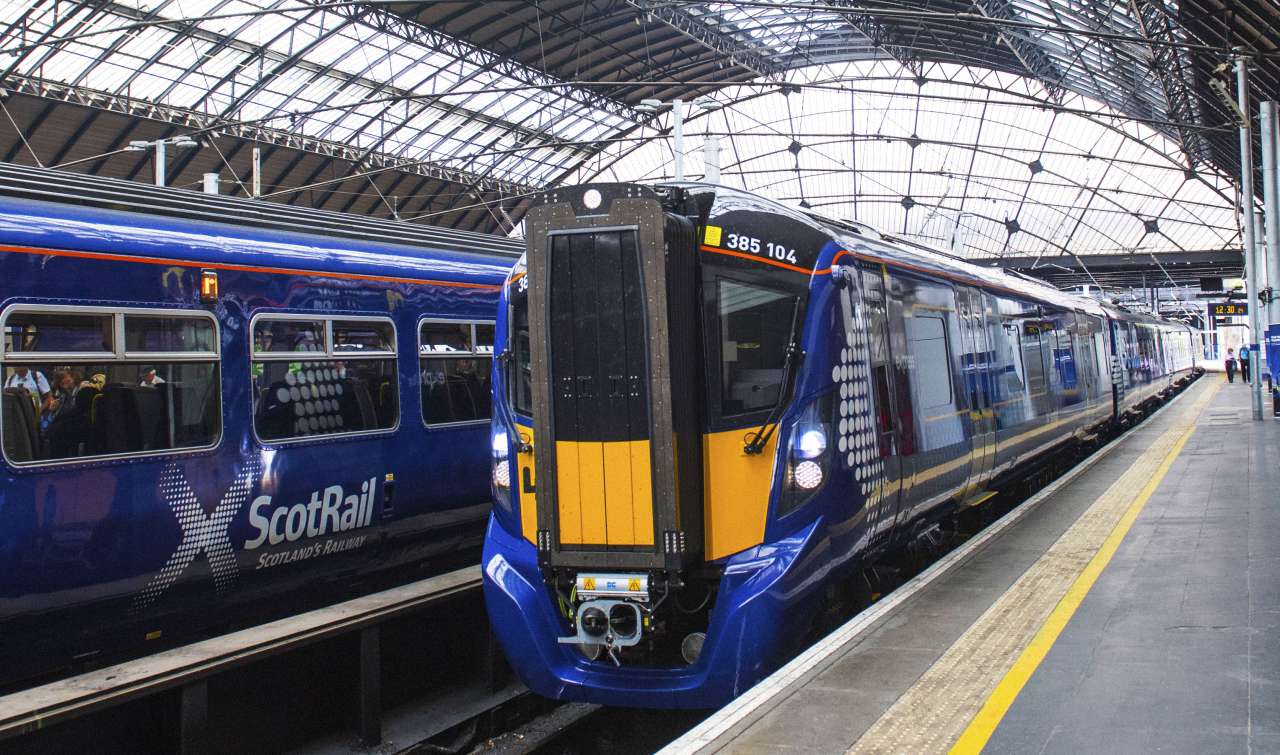ScotRail says that fewer train drivers than normal are currently available for overtime or rest-day work and has had to introduce a reduced timetable.
According to ScotRail, the temporary timetable changes will give the travelling public more reliable services and are a much better alternative to sudden service cancellations, which would be unavoidable if the normal timetable were to continue in the present circumstances.
For several weeks, the train operator has held pay discussions with the rail trade unions, ASLEF, RMT, TSSA, and Unite.
On Friday, 5 July, ScotRail made a formal pay offer in line with the Scottish Government’s public sector pay policy.
However, all four trade unions rejected this offer. ASLEF will now recommend a ballot for industrial action over pay to its Executive Committee.

The temporary timetable will see ScotRail operate around 1,660 services each day Monday to Saturday.
The temporary timetable will still provide over 515,000 seats each day, around twice the number of passenger journeys being made.
The times of first or last trains on more than half of all routes will remain unchanged, but there will be changes in the number of services provided during the morning and evening peak times.
For example, where there are normally four trains per hour during the peak, this will reduce to a half hourly service, which is the same as the off-peak.
ScotRail strongly advises customers to check their journey before travelling, using the ScotRail website or app.
These systems are due to be updated by around 22.00 this evening, Tuesday July 9th. Timetables for weekend travel are due to be in systems on Thursday evening, July 11th.

Customers can view the temporary timetable here.
We are very sorry to customers for the disruption to services. We know that customers want certainty and reliability, which is why we are introducing a temporary timetable, in place of late-notice cancellations. We are operating services which the vast majority of customers use and are still using all the available trains in our fleet so customers can continue to travel.
We want to resolve the pay dispute with the trade unions and remain fully committed to further discussions. We’re asking customers to check their journey on our website or mobile app, as train times will have changed.
Mark Ilderton, ScotRail Service Delivery Director





Responses
Those blaming the unions for drivers not working overtime or their days off should really think before they comment.
It’s down to the company to provide enough staff to run the service without relying on drivers working extra and giving up their family time. The company has created this issue and unsurprisingly has lost the goodwill of its staff.
As regards doctors,nurses etc being deserving of more pay. Yes the are but suggesting a race to the bottom isn’t the answer.
If train companies are relaying on employed staff to do overtime and complete additional work on “rest days”; does this not mean they do not have enough train staff? If staff are happy to work current hours why not employ extra staff then to cover these gaps as a norm and not an expectation of current staff which then impacts on your paying customers, when they decide not to do overtime. Train companies have created a problem and need to act to fix it. There is no public loyalty with British train services and this just adds fuel to the fire.
The rail unions concerned does not seem to care that it is solely now holding the public in Scotland and Northern England to ransome, with all the lack of morality that entails.They cannot now say, in the Northern case, that a Government is absolving themselves of involvement or ignoring the matter by default.In the Scottish case, they have a railway fully in public ownership and are still trying it on.So much for the panacea of ( so called) nationalisation.Even if you do not use the railway , you still pay through your taxes.The effect on people having to drive is obvious.
We have a new Government, who will be looking for alternative forms of taxation.Just think how much taxable revenue has been lost through rail strikes ( loss to hospitality taxation and revenue) since COVID, due to all the rail strikes since then and not counting loss of tickets revenue.
It is morally wrong mucking up people’s live thus.
Anyone from these Unions.
Drivers you make more than most proffessions. Some more deserving of this money like doctors and teachers. Just change your lifestyle like eveyone else. It’s not fair on everyone else.
Will you be happy to give up your day off to work, then? That’s what ‘working your rest day’ means. Drivers must not work more than 13 days in a row from a safety critical perspective, so declining to work their day off is a way of ensuring that safety comes first.
Not good news for anybody using the trains, however far better than Northern who simply cancel trains at the last moment. The unions need to realise that the increases are coming from the taxpayers who may wonder why drivers on £ 45.000 plus need more